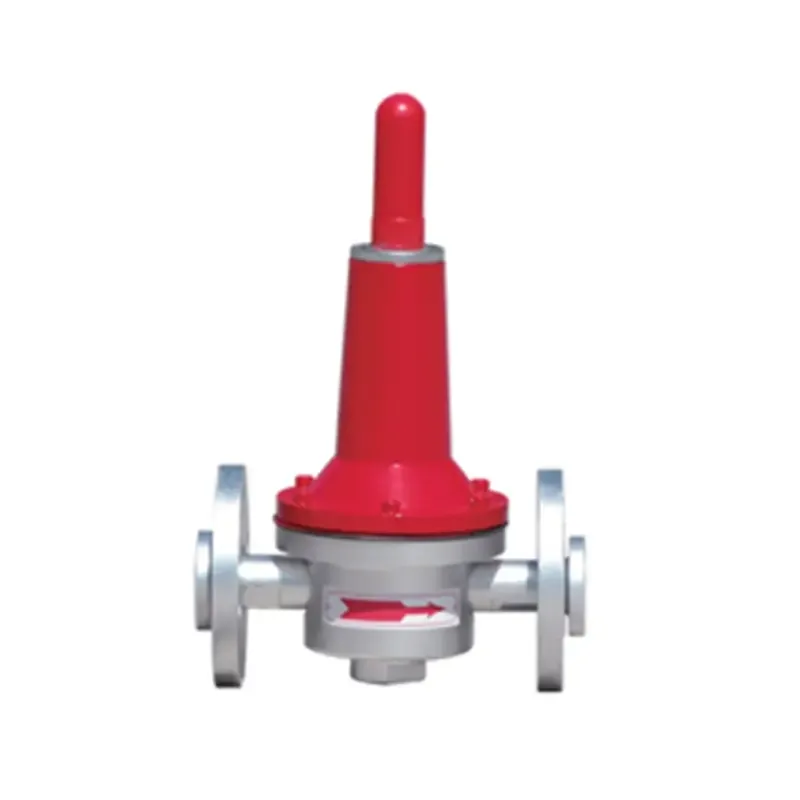
Sep . 26, 2024 02:37
Back to list
صمام الغاز الطبيعي
Natural Gas Valve An Essential Component in Energy Management
Natural gas has emerged as one of the primary sources of energy globally, playing a crucial role in heating, electricity generation, and various industrial applications. As the demand for natural gas continues to grow, so does the importance of the technology that ensures its safe and efficient delivery. Among the key components in this system are natural gas valves. These valves are vital for regulating the flow of gas, ensuring safe operation, and providing critical control measures within gas distribution networks.
What is a Natural Gas Valve?
A natural gas valve is a mechanical device that controls the flow of natural gas in pipelines and other systems. These valves can be operated manually or automatically, depending on the needs of the system. They serve various functions, including stopping the flow of gas, regulating pressure, and allowing for the safe maintenance of systems without the risk of gas leakage.
There are several types of natural gas valves, each tailored for specific applications. Common types include ball valves, gate valves, globe valves, and check valves. Ball valves, for instance, are widely used due to their ability to provide a tight seal and quick shut-off. Globe valves are more suitable for regulating flow while gate valves are primarily used for on/off control. Check valves, on the other hand, prevent backflow in pipelines, ensuring that gas flows in one direction only.
.
1. Safety One of the paramount concerns in any gas distribution system is safety. Natural gas is highly flammable, and any leakage can have catastrophic consequences. Valves play a crucial role in ensuring safety by isolating sections of the pipeline during maintenance or in case of leaks. Emergency shutoff valves can quickly halt the flow of gas, preventing accidents and minimizing the risk of explosions.
صمام الغاز الطبيعي

2. Flow Control Natural gas valves provide precise control over the flow of gas. For example, in industrial applications, the demand for gas may fluctuate throughout the day. Valves help maintain the desired flow rates, ensuring that operations run smoothly and efficiently. This is vital not only for operational success but also for energy efficiency, as improper flow can lead to wastage and increased costs.
3. Pressure Management Maintaining appropriate pressure levels within gas pipelines is critical to ensuring a steady supply and preventing pipe damage. Natural gas valves are equipped with pressure regulating capabilities to adjust and stabilize pressure within the system. By doing so, they help prevent over-pressurization, which can lead to dangerous ruptures.
4. Maintenance Convenience Natural gas valves facilitate easy maintenance and inspection of gas systems. With the right valve in place, operators can isolate sections of the pipeline for maintenance without disrupting the entire system. This reduces downtime and ensures that the supply of gas remains uninterrupted.
5. Integration with Smart Technology With the rise of smart technology in the energy sector, natural gas valves are increasingly being integrated into automated systems. Smart valves equipped with sensors can monitor flow rates, pressure levels, and even detect leaks. This data can be analyzed in real-time, allowing for timely interventions and enhancing overall safety and efficiency.
Conclusion
In conclusion, natural gas valves are indispensable components of modern gas distribution systems. They not only ensure the safe transport of natural gas but also enhance the efficiency and reliability of gas supply. As the energy sector continues to evolve, with a growing emphasis on safety and smart technology, the role of valves will become even more pronounced. Understanding the importance of these devices contributes to better management of one of the world’s most vital energy resources, ultimately paving the way for a more sustainable and efficient energy future. As we move forward, investing in advanced valve technology and integrating it with smart systems will be key to meeting the challenges of tomorrow's energy demands.
Latest news
-
Safety Valve Spring-Loaded Design Overpressure ProtectionNewsJul.25,2025
-
Precision Voltage Regulator AC5 Accuracy Grade PerformanceNewsJul.25,2025
-
Natural Gas Pressure Regulating Skid Industrial Pipeline ApplicationsNewsJul.25,2025
-
Natural Gas Filter Stainless Steel Mesh Element DesignNewsJul.25,2025
-
Gas Pressure Regulator Valve Direct-Acting Spring-Loaded DesignNewsJul.25,2025
-
Decompression Equipment Multi-Stage Heat Exchange System DesignNewsJul.25,2025

